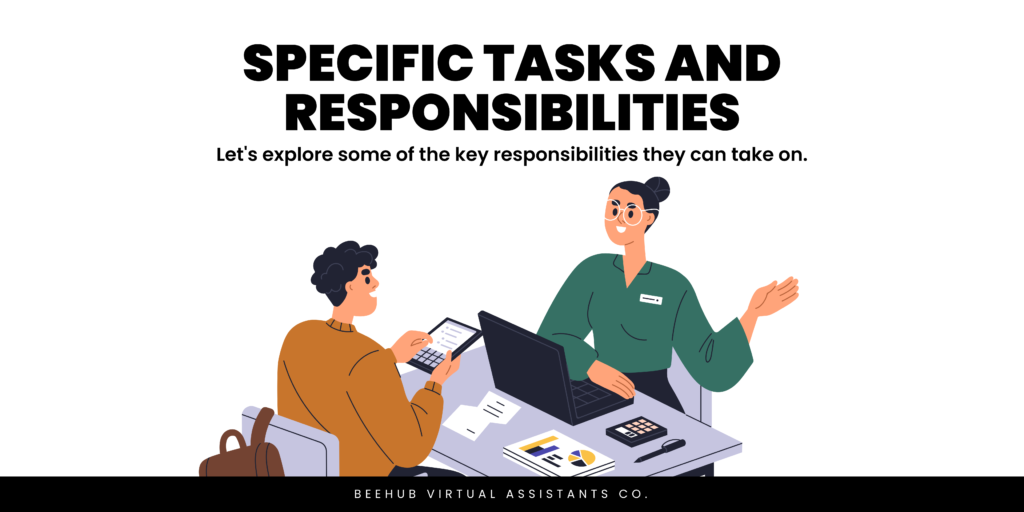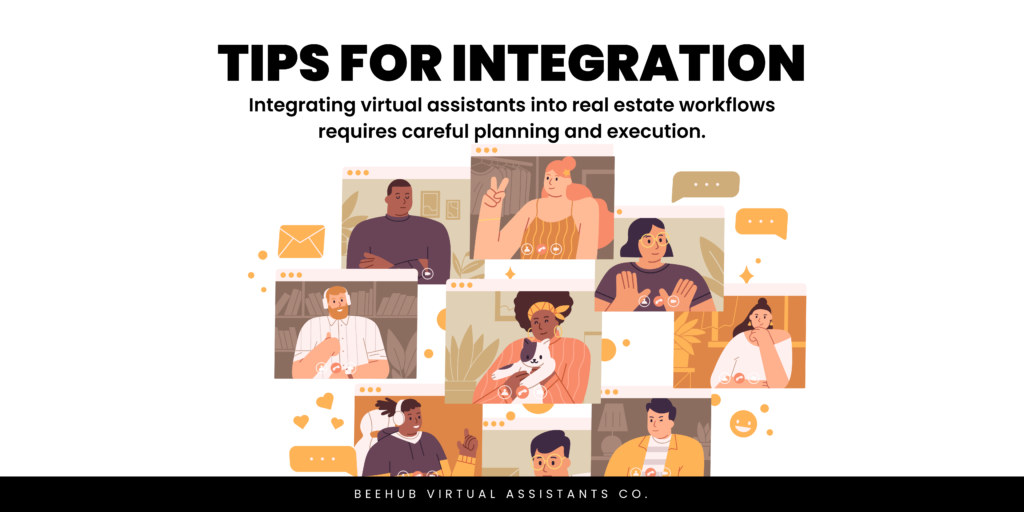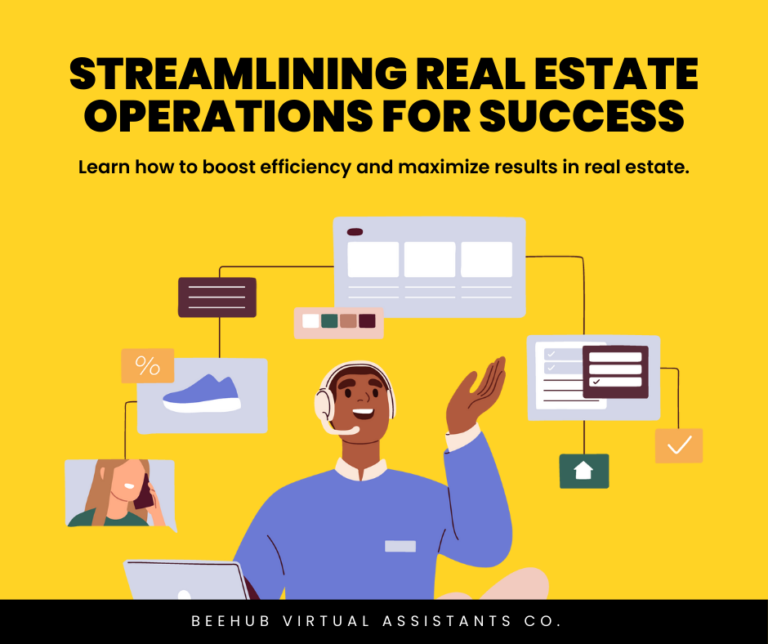Hotline: US: +1 (509) 241-8671 | Philippines: WhatsApp: +63 960 477 7722 Email: info@beehubvas.com
The real estate industry is a complex and dynamic field that requires professionals to juggle various tasks and responsibilities seamlessly. From lead generation to client management, real estate agents and agencies face numerous operational challenges that can impact their efficiency, productivity, and ultimately, their bottom line. In this blog post, we’ll delve deep into how virtual assistants from the Philippines can address these challenges and streamline real estate operations effectively.
Overview of Virtual Assistants in Real Estate
Virtual assistants (VAs) have become indispensable assets to businesses and professionals across various industries, including real estate. These skilled professionals work remotely to provide support and assistance in a wide range of tasks, allowing businesses to streamline their operations, reduce costs, and focus on core activities. In the real estate sector, Filipino virtual assistants have gained prominence for their expertise, reliability, and cost-effectiveness.

Filipino virtual assistants can handle a multitude of tasks that are integral to real estate operations. Let’s explore some of the key responsibilities they can take on:
Lead Generation
One of the primary challenges for real estate professionals is generating qualified leads. Virtual assistants can assist in this area by researching and identifying potential leads, conducting outreach through various channels (such as email, social media, and cold calling), and managing lead databases effectively. By leveraging their skills in lead generation, VAs can help real estate agents and agencies expand their client base and increase sales opportunities.
CRM Management
Customer relationship management (CRM) is crucial for maintaining strong relationships with clients and prospects. VAs can play a vital role in managing CRM systems, updating client information, tracking interactions, and ensuring data accuracy. By keeping CRM databases organized and up-to-date, virtual assistants enable real estate professionals to deliver personalized services, track leads effectively, and nurture client relationships over time.
Scheduling Appointments
Coordinating appointments and property viewings is a time-consuming task for real estate agents. Virtual assistants can streamline this process by managing calendars, scheduling appointments based on client preferences, sending reminders, and coordinating logistics with clients and stakeholders. This not only saves time for agents but also enhances the overall client experience by ensuring smooth and efficient appointment scheduling.
Administrative Support
Real estate professionals often deal with a significant amount of paperwork, documentation, and administrative tasks. Virtual assistants can provide valuable administrative support by handling tasks such as data entry, document preparation, email management, and office organization. By offloading these administrative responsibilities to VAs, real estate agents can focus their energy on high-priority activities like client meetings, negotiations, and property transactions.

Here are some tips to ensure a smooth and effective integration process:
Define Clear Roles and Responsibilities
Clearly define the roles and responsibilities of virtual assistants to align with your business objectives and workflow requirements. This includes specifying tasks, setting performance expectations, and establishing communication protocols.
Provide Comprehensive Training
Invest in thorough training for virtual assistants to familiarize them with your business processes, tools, and systems. Provide access to training materials, conduct regular check-ins, and encourage ongoing learning and skill development.
Establish Communication Channels
Set up regular communication channels, such as email, phone calls, video conferences, and project management tools, to facilitate seamless collaboration between real estate professionals and virtual assistants. Ensure clear communication channels for task assignments, updates, feedback, and support.
Set Realistic Expectations
Set realistic expectations regarding workload, deadlines, and deliverables for virtual assistants. Avoid overloading VAs with excessive tasks or expecting immediate results. Maintain open communication to discuss priorities, timelines, and any challenges or issues that may arise.
Encourage Collaboration
Foster a collaborative working environment between real estate professionals and virtual assistants. Encourage feedback, idea sharing, and collaboration on projects to leverage the diverse skills and expertise of team members. Recognize and appreciate the contributions of virtual assistants to foster a positive and productive working relationship.

The role of virtual assistants in the real estate sector is constantly evolving, driven by technological advancements, changing market dynamics, and industry trends. Here are some future trends and possibilities for virtual assistant roles in real estate:
AI-Powered Virtual Assistants
The integration of artificial intelligence (AI) technologies, such as chatbots and virtual assistants with natural language processing capabilities, will enable more sophisticated and intelligent virtual assistant services in real estate. AI-powered VAs can automate routine tasks, provide personalized client interactions, and offer data-driven insights for decision-making.
Specialized Industry Training
Virtual assistants specializing in real estate may undergo specialized training programs to enhance their industry knowledge, skills, and capabilities. This includes understanding real estate terminology, regulations, market trends, and property types to provide tailored support and expertise to clients and agents.
Expanded Service Offerings
Virtual assistants may expand their service offerings beyond traditional administrative tasks to include specialized services such as digital marketing, social media management, property research, and transaction coordination. This allows real estate professionals to access a broader range of services and expertise through virtual assistant partnerships.
Global Remote Teams
With the rise of remote work and global connectivity, real estate agencies may build remote teams comprising virtual assistants from different locations, including the Philippines. This global talent pool offers diverse skills, cultural insights, and language proficiency, enabling real estate firms to serve clients globally and expand their market reach.
BeeHub Virtual Assistant Co. Benefits
BeeHub Virtual Assistants Co. stands out by providing highly trained Filipino virtual assistants who excel in various real estate operations.
Additionally, real estate agents partnering with BeeHub will have access to a team of skilled VAs who can handle different areas of real estate processes. Our team is capable of managing tasks ranging from social media marketing to transaction and listing coordination. This ensures that all aspects of your real estate business are covered, allowing you to operate more efficiently and effectively.
BeeHub also offers flexibility with our plans and packages to cater to your unique business needs. Whether you need a single VA or a dedicated team, we provide tailored solutions to match your requirements. Explore our plans and pricing page here to find the perfect package for your business.
By choosing BeeHub Virtual Assistants Co., real estate professionals can enhance their operational efficiency, reduce costs, and deliver exceptional service to their clients. BeeHub’s commitment to continuous training and development ensures that our VAs stay ahead of industry trends and are equipped to handle emerging challenges in the real estate sector.


